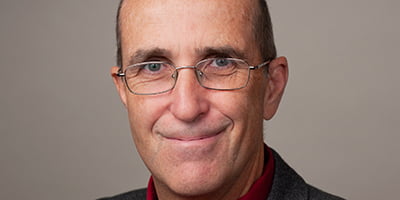
Leon Suprenant is the pastoral associate for administration in the office of the permanent diaconate. He also blogs at: www.archkck.org/blog.
by Leon Suprenant
Last month, I heard a wonderful keynote address by Cardinal Daniel DiNardo of Houston on “The Deacon as Servant of the New Evangelization.”
While his comments were directed to a roomful of deacons, the principles of evangelization that he identified are applicable to all Catholics:
(1) Conviction. The first Christians were immersed in the word of God. They spoke with “bold assurance” — not of their own creation, but through the power of the Holy Spirit. As we see from modern-day examples such as Mother Teresa, such conviction is not “arrogance,” but the fruit of lives turned over to Christ.
(2) Engagement. It’s instructive that Luke’s sequel is called the “Acts of the Apostles” and not the “Good Intentions of the Apostles” or “Pastoral Plan of the Apostles.” Pope Francis is calling the church to stop focusing on internal issues and instead actively engage in the mission of Jesus for the life of the world.
(3) Bridge-building. We must be bridges and not ob- stacles for meeting Christ. As channels of Christ’s peace, we must adapt to the needs of those around us. A good New Testament role model is Barnabas, who made it possible for St. Paul to become the great Apostle to the Gentiles. Do I make it possible for others to shine, or is it about “me” or “my ministry”?
(4) Remember the poor. Cardinal DiNardo recounted the story from the conclave that as it appeared that Cardinal Bergoglio would be elected, Cardinal Hummes turned to the future pope and whispered. “Always remember the poor.” We hear talk of “transforming the culture” and sometimes it seems very abstract. What it means in large part is making works of mercy and charity a greater part of who we are as church. It’s not rocket science: Helping people who need material or spiritual help is the basic building block of renewal.
(5) Use words. A “tsunami of secularism” is battering our society. We’re deceiving ourselves if we believe that our society is even neutral when it comes to the Christian faith. Sadly, our culture has largely cut itself off from God. Even within the church, there are many who go through the motions without a close personal relationship with the Lord.
Do we need to pray and set a good Christian example? Of course. But it can’t end there. Pope Francis understands that we have to talk to people about Jesus. After all, the church exists to evangelize, to call everyone to salvation in Christ through the forgiveness of sins.
That’s our story. And today all priests, deacons, religious, and laity must take up the Holy Father’s challenge to invite others to a life-changing relationship with Christ in his church.

